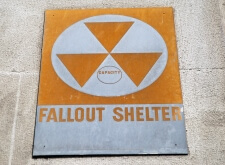 The controversy continues around Hinkley Point C, the UK’s first new build nuclear plant in a generation.
The controversy continues around Hinkley Point C, the UK’s first new build nuclear plant in a generation.
Rebuke
The European Commission, fresh from ruling that government support for the new build reactor did not contravene state aid rules, has rebuked Chancellor of the Exchequer George Osborne for failing to disclose all costs associated with the project.
Under the terms of the deal, EDF Energy had been promised by the government that they would receive a ‘strike’ price for every MWH of electricity generated that would guarantee profitability of the £16bn building project.
However, the EC minutes revealed that there was:
“Regret, expressed by some, that all the long-term costs for the British Treasury had not been integrated into the calculation of the cost of the project, for instance the cost of storing the nuclear waste or of dismantling the plant at the end of its lifetime”.
A Treasury spokesman defended the process explaining:
“With respect to the decommissioning and storage costs the situation is that [EDF subsidiary] NNBG are responsible for these long-term costs (through their investment in a Funded Decommissioning Plan), and these costs are all included in the agreed strike price. It is a pity that the minutes do not reflect this.
“As well as being responsible for their costs in cleaning up of the site, NNBG will pay HM Government for the radioactive waste transferred to HM Government for long-term storage.”
Underlining the well-known nature of the nuclear market where de-commissioning keeps nuclear investment costs active well past the active lifetime of the plant, Dr David Lowry, a nuclear energy research consultant said:
“When ministers and political atomic aficionados back the nuclear industry’s claims that they have covered all future costs for long-term radioactive waste management, they have fallen into a clever trap.”
Freedom
Whilst the rebuke is embarrassing, the European Commission’s displeasure with the UK comes at a time when a nuclear future for Britain has been potentially freed up under the terms of the new 2030 EU climate change agreement.
That is because although the 28 EU member states must abide by the emissions targets set for 2030, the route by which this is achieved is entirely the decision of the relevant national government.
The target, to cut emissions by 40% compared with 1990 levels by 2030 differs from that which existed under the 2020 deal in that the previous agreement had required subsidisation of a minimum volume of renewable energy.
The UK challenged this and has agreed consensus with the other member states to drop this requirement, thereby allowing it and them a free hand in deciding where to place new build generation investment.
Announcing the deal, the EU promised:
“Targets will not be translated into nationally binding targets.”
The compromise deal requires the EU as a whole to produce 27% of energy from renewable sources by 2030 but requires no minimum contribution from each member state. As a result the UK could ride on the back of other countries’ investment and concentrate theirs in low carbon but not renewable sources.
The government has welcomed the news with Ed Davey, Secretary of State for Energy and Climate Change claiming:
“It’s [the targets being non-binding nationally are] good for consumers because we can decarbonise at the lowest possible cost using a diverse mix of technologies.”
Gareth Stace, Head of Environment Policy at the EEF, the manufacturers’ organisation, echoed those sentiments saying:
“The EU now has an emissions target broadly in line with the UK’s own ambitions, helping level the playing field for UK manufacturers and strengthening the market for low-carbon goods and services.
“EU leaders have signalled that they recognise the importance of protecting carbon-intensive industries threatened by overseas competitors from the full costs of the EU emissions trading system.”
If more new build nuclear really is on the agenda, one doubts the European Commission will be quite so accommodating around failings in cost transparency next time around.
